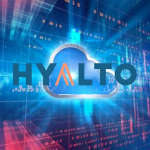HyAlto reporting from the front row of Microsoft Inspire
Earlier this month, our team headed to Las Vegas for the annual Microsoft Inspire conference, where it was abundantly clear how Redmond has evolved under the leadership of CEO Satya Nadella.
The days of shrink-wrapped software in a box are long gone. Sadella has transformed Microsoft into a company in which approximately two-thirds of its revenue is now monthly recurring.
Then there is the vibe at an event like this. Microsoft may be a megalithic multinational, but it has adopted the kind of progressive and nimble culture typical of a startup.
This is manifesting in how Microsoft is building and supporting a partner ecosystem as it comes to dominate the cloud. Not only is it focused on driving consumption of its own services, but also, in feeding this ecosystem and expanding a co-selling strategy that creates symbiotic relationships. Growth was the big theme at Inspire this year with the emphasis being that “we can’t do it without our partners.”
In his extensive keynote, Nadella threw up three numbers – 100, 17, 7 – 100,000 employees, 17 million partners, a global population of seven billion. Microsoft’s goal is to enhance the lives of every person on earth with that team and those partners.
Now, of that “17 million” about 200,000 are true trained and certified partners. It’s among this more curated group that we find prospects of interest to us as potential partners/customers.
In the last fiscal year, the company grew revenues by 14 per cent and net income by 137 per cent. The biggest driver of Microsoft’s performance is its commercial cloud services business. Nadella said the business has brought in US$38 billion in revenue over the past year, at a 63 per cent profit margin.
Nipping on the heels of AWS
The foundation of that business is Azure, which is rapidly catching up with the current leader, Amazon Web Services.
Gartner noted this just recently with the 2019 edition of its annual Infrastructure-as-a-service magic quadrant. It wrote that Azure provides a “well-integrated approach to edge computing and Internet of Things (IoT) from its hyper-scale data centers to edge solutions. And Microsoft has become increasingly open, with half of Azure workloads based on Linux and open source application stacks.”
In February, the Rightscale State of the Cloud Report from Flexera (based on 786 survey respondents of which 58 percent are classified as enterprise customers) found that overall Azure adoption grew from 45 to 52 percent among respondents compared with the previous year. Azure adoption had reached 85 percent of AWS adoption, up from 70 percent the year before.
Gartner further wrote that, “Microsoft has a unique vision for the future that involves bringing in technology partners through native, first-party offerings such as those from VMware, NetApp, Red Hat, Cray and Databricks.”
The cloud is built on partnerships
That kind of partnership with the likes of VMware is of particular interest to HyAlto, as we look to build our support for, and partnership with, a variety of cloud service providers.
Partnership is critical in the cloud world. In one Microsoft Inspire session, attendees were presented with the examples of Delta Airlines and Starbucks, and how their cloud-based applications can allow for a consumer to fully transact and obtain anything from a personalized skinny latte to a flight without having to engage with a single living human being. In either case, the technology required to make this possible involves some 97 technology partners.
At the conference, Microsoft claimed that US$10 billion of its revenue in the last fiscal arose from co-sell arrangements with its partners. It touts the largest co-sell program in the world, which includes some 70,000 resellers, and to have passed along 250,000 leads to its partners in the past year.
What’s the takeaway from all this?
Microsoft is a huge and influential player in the cloud space and is on a strong trajectory to unseat AWS as top dog. The partner ecosystem is critical to all this, not only to drive consumption of its own services, but to grow that co-sell strategy that also supports its partners’ top lines.
It’s a “rising tide floats all ships” philosophy. This creates a compelling opportunity for HyAlto as these various partners find themselves in need of that single pane of glass with which to efficiently and effectively provision, monitor and bill their enterprise customers for a growing menu of cloud services.







